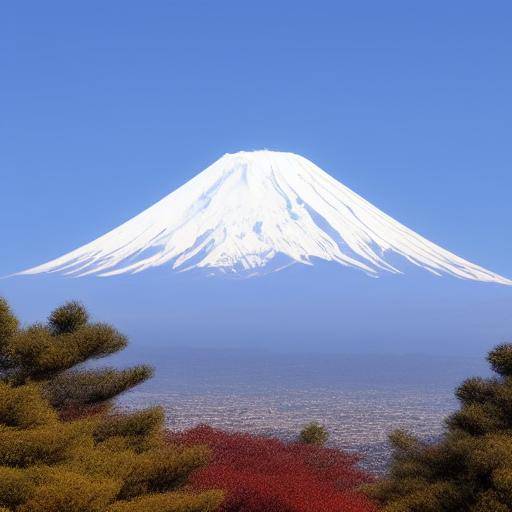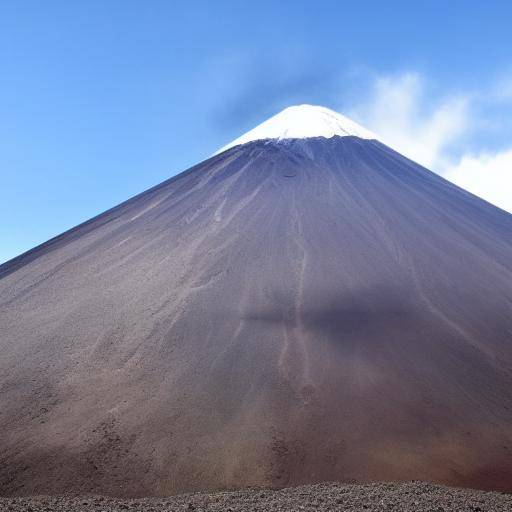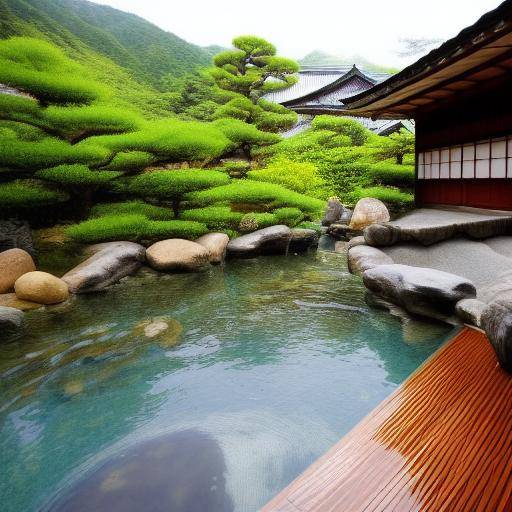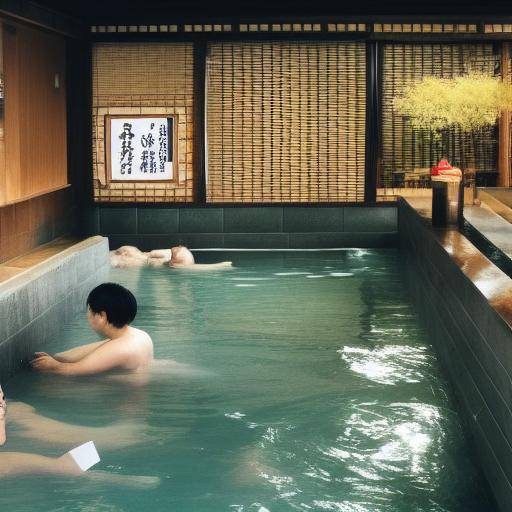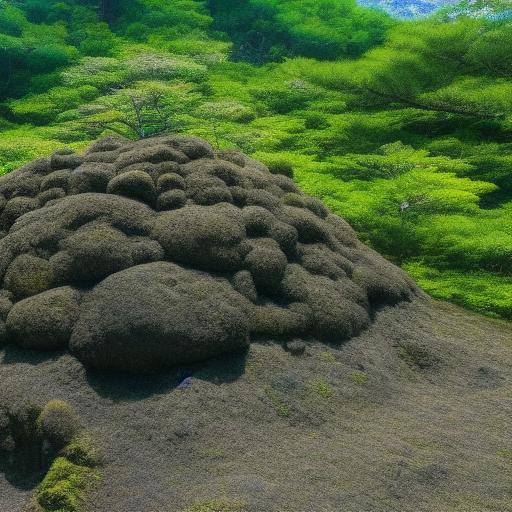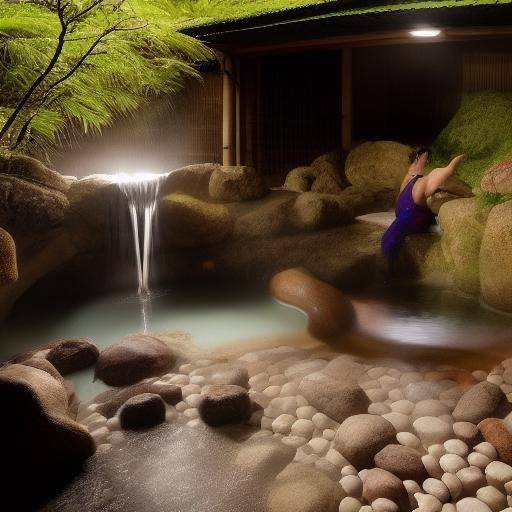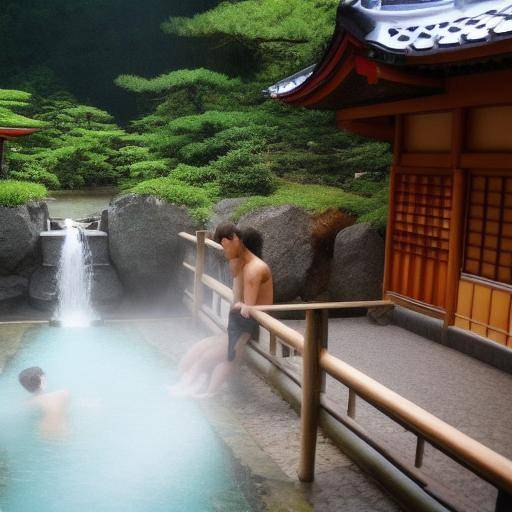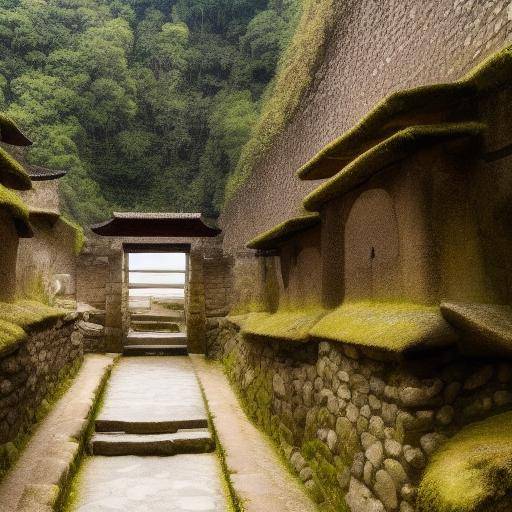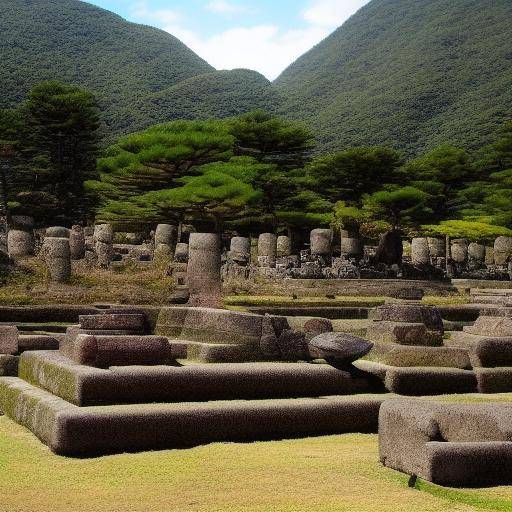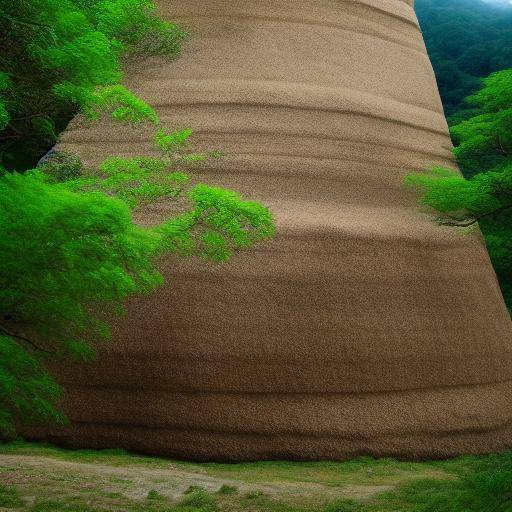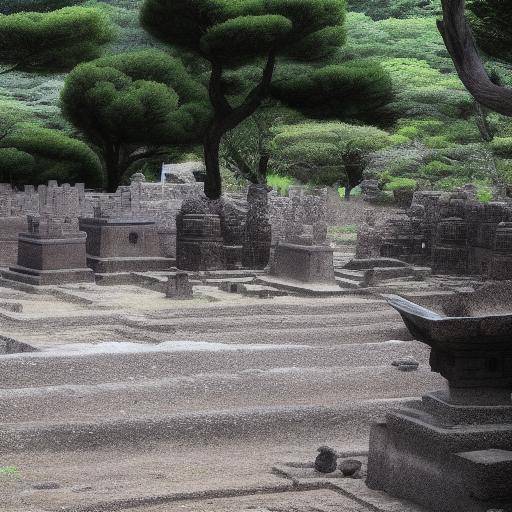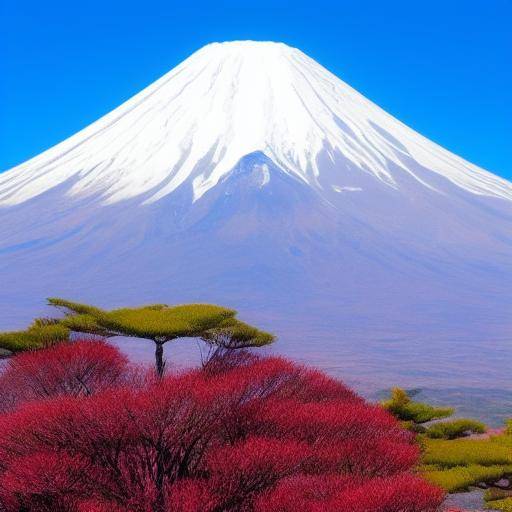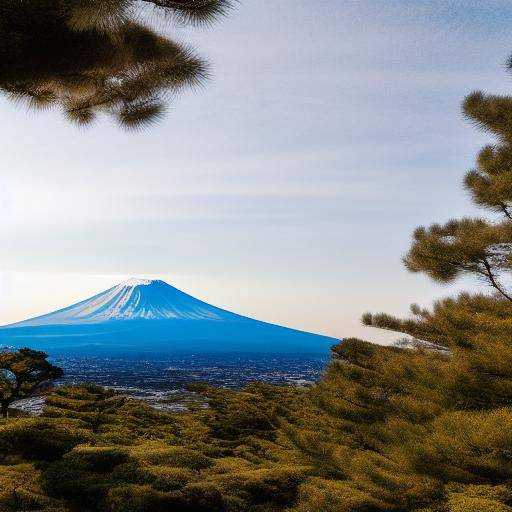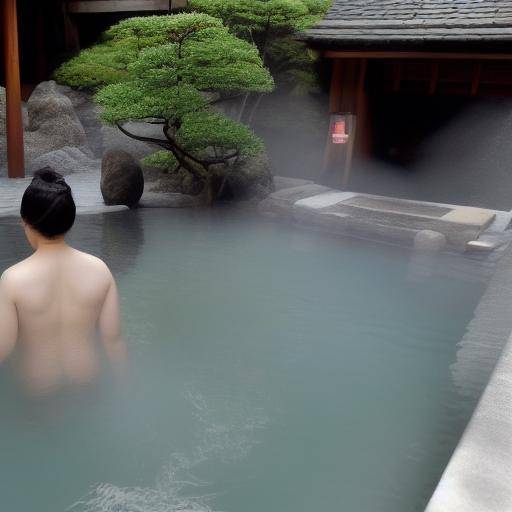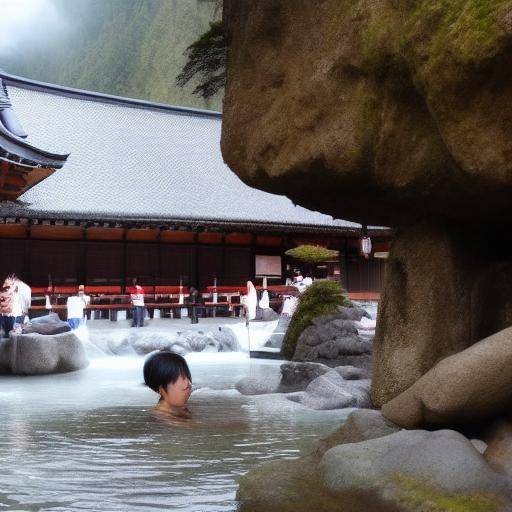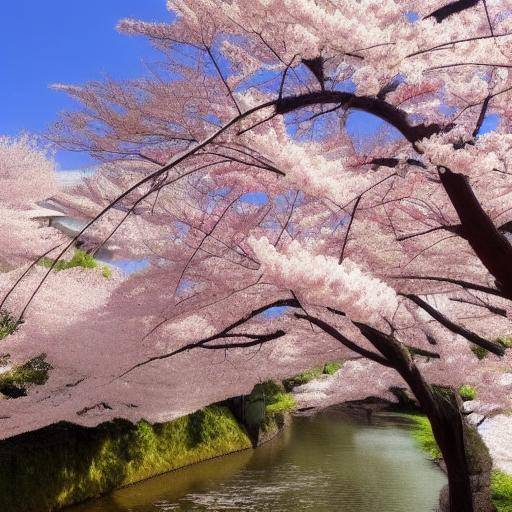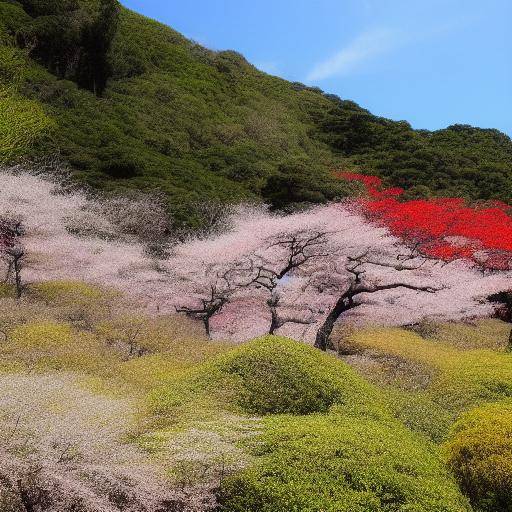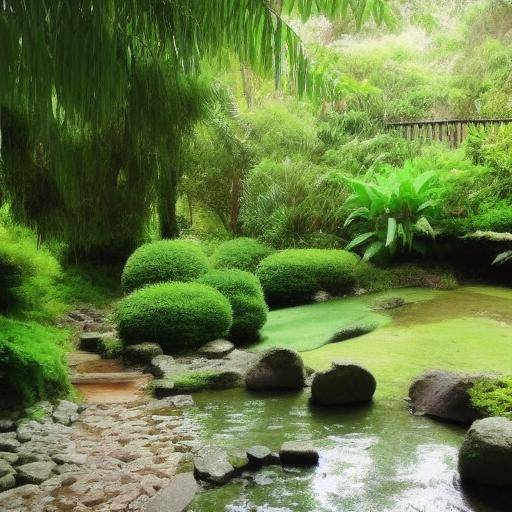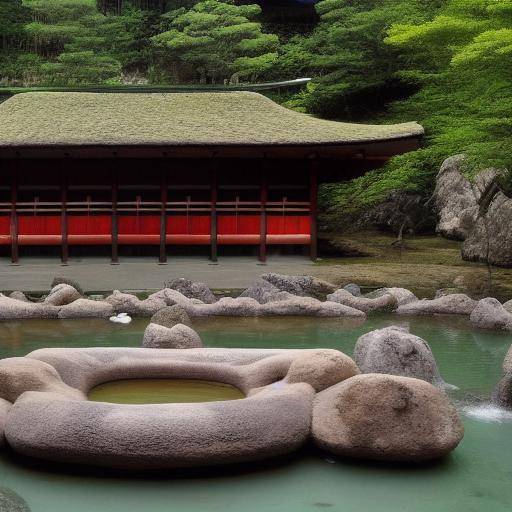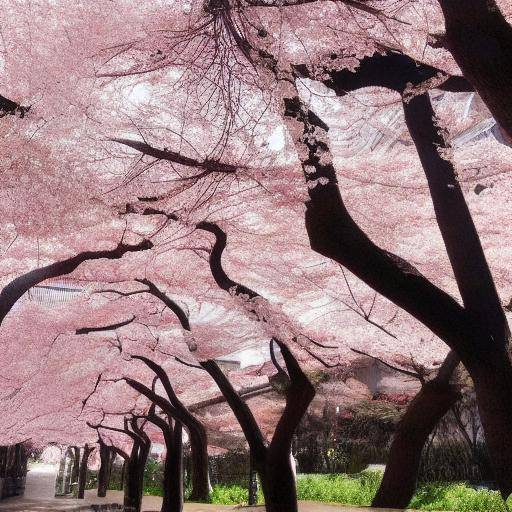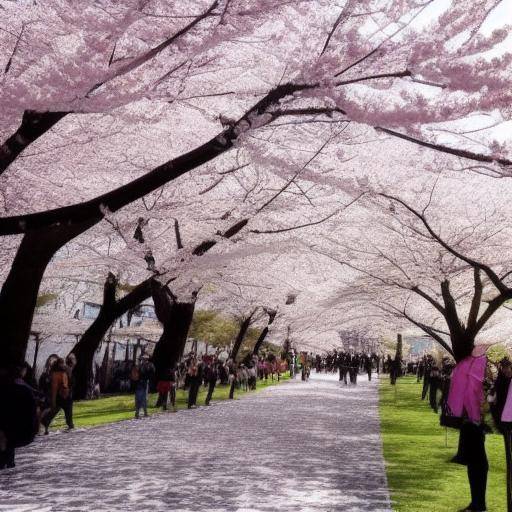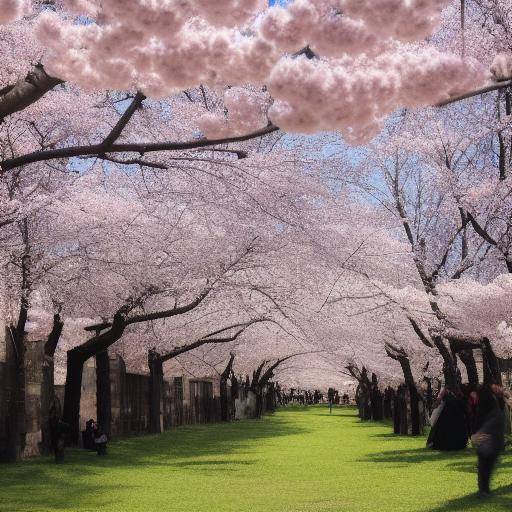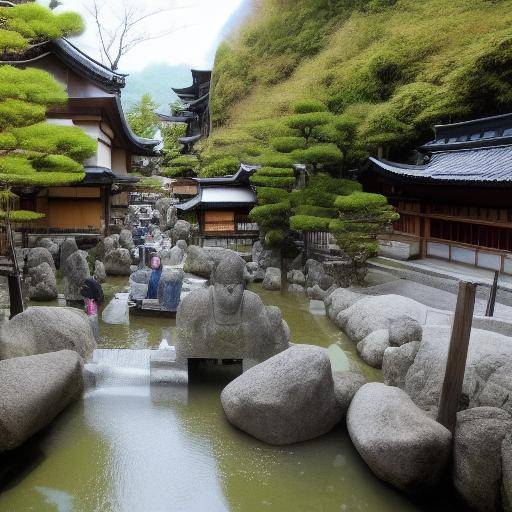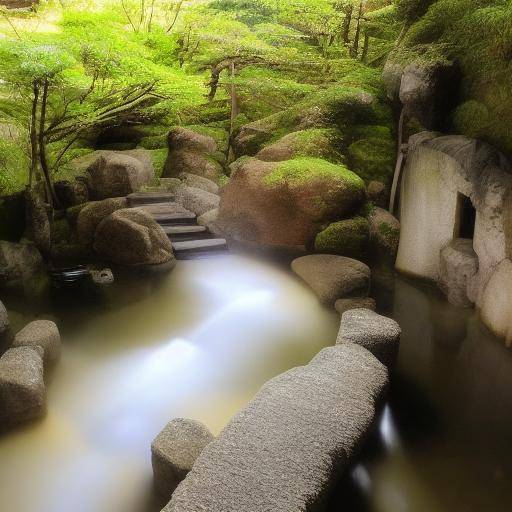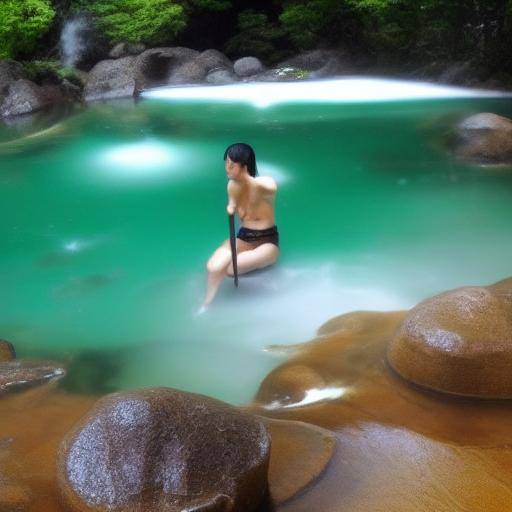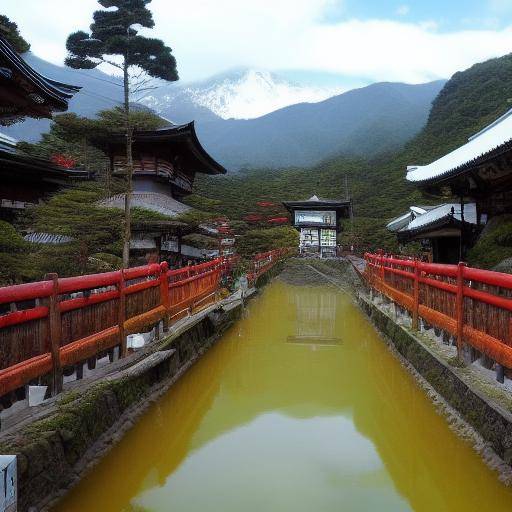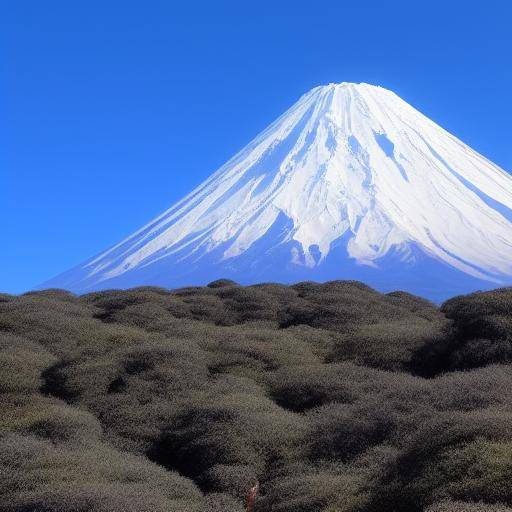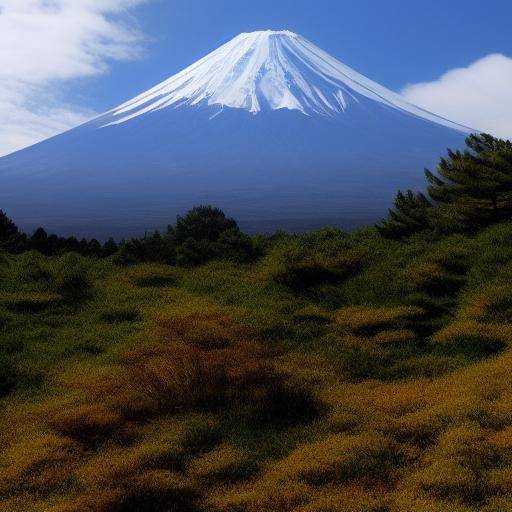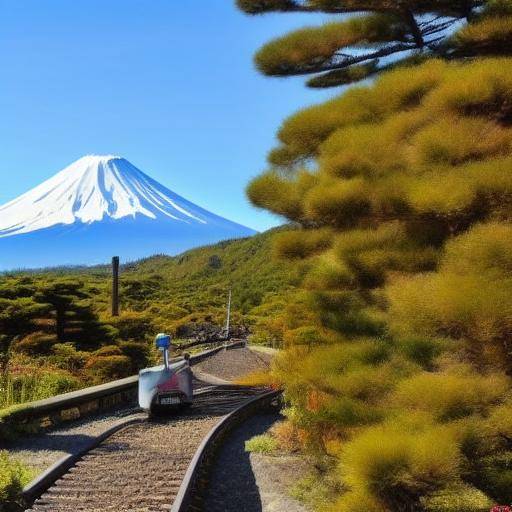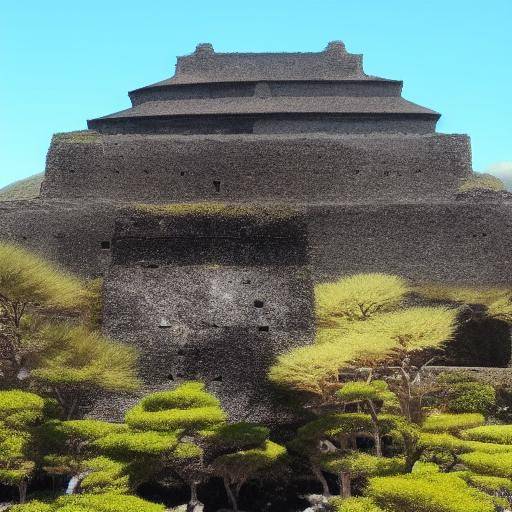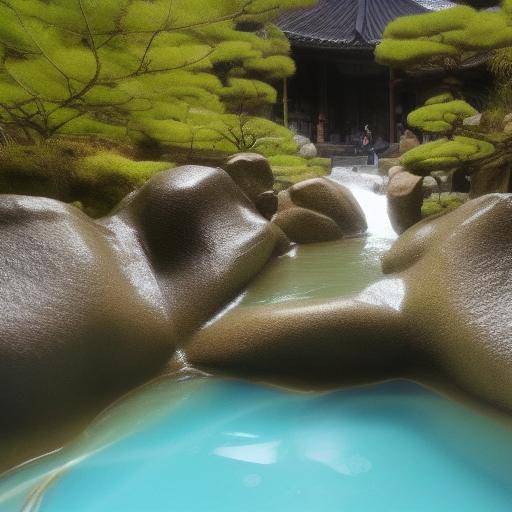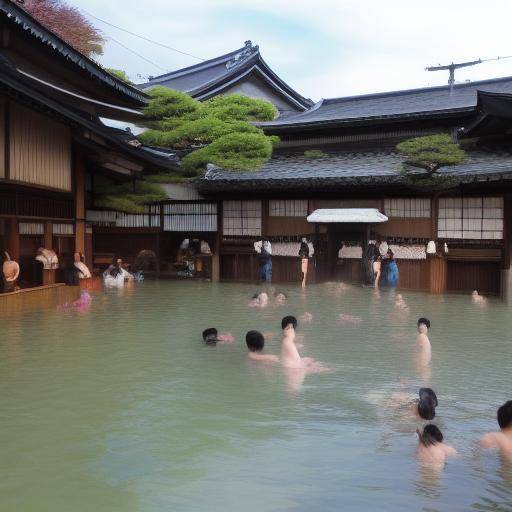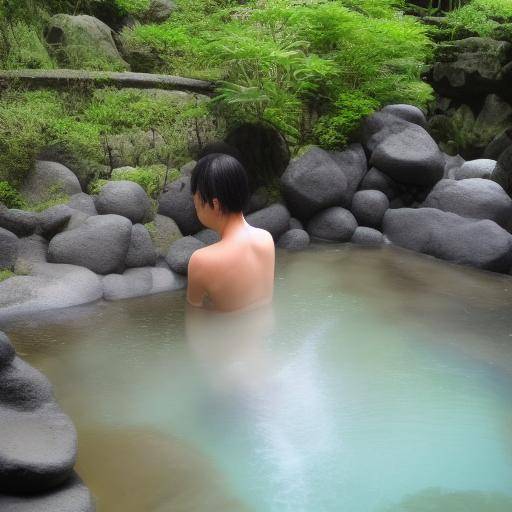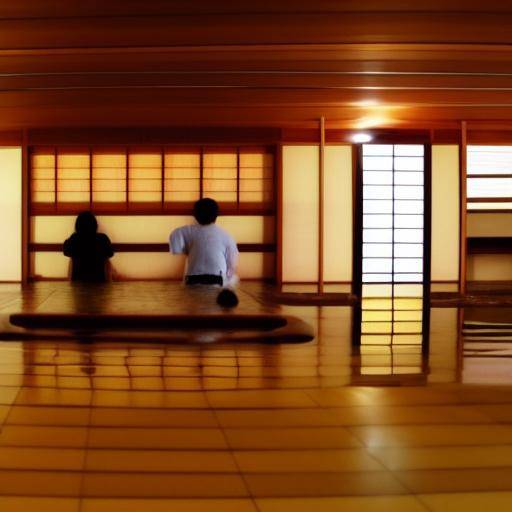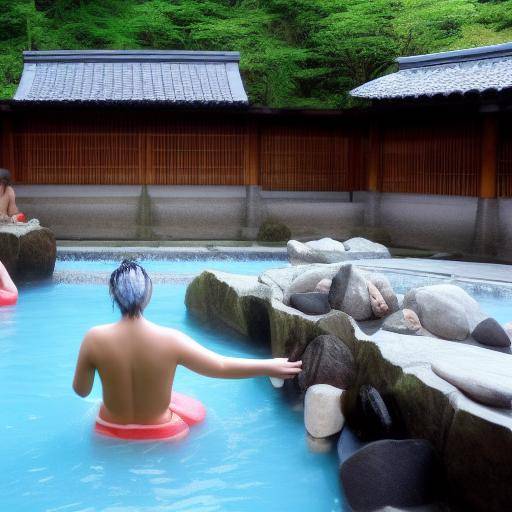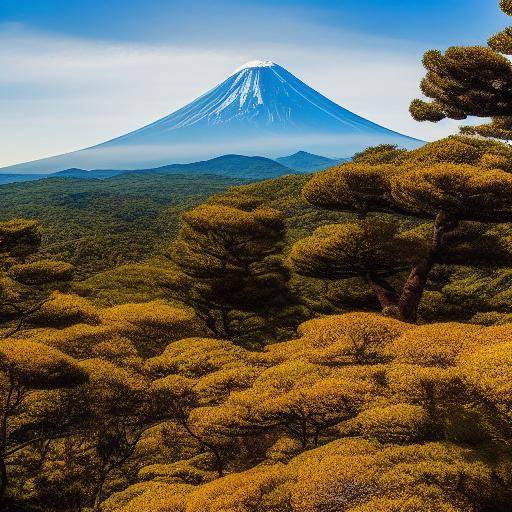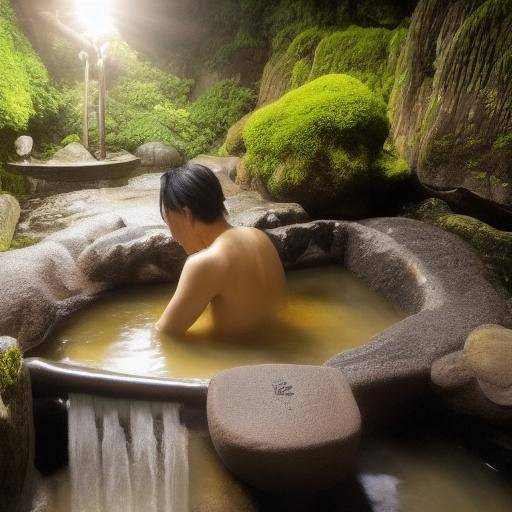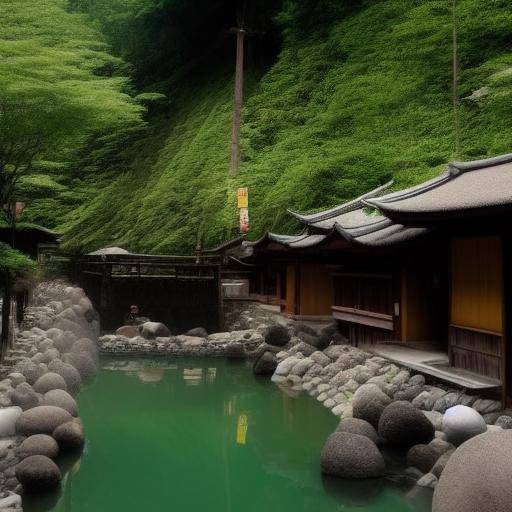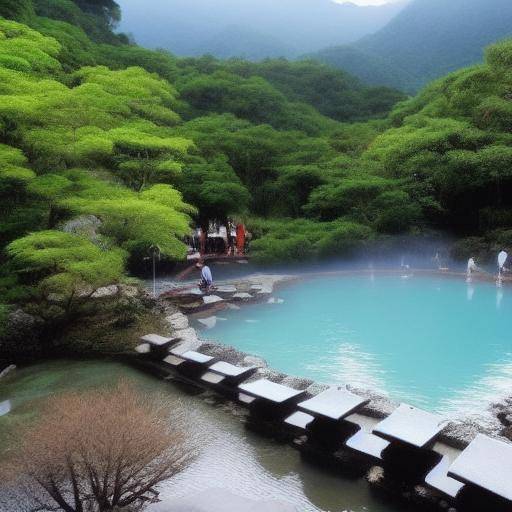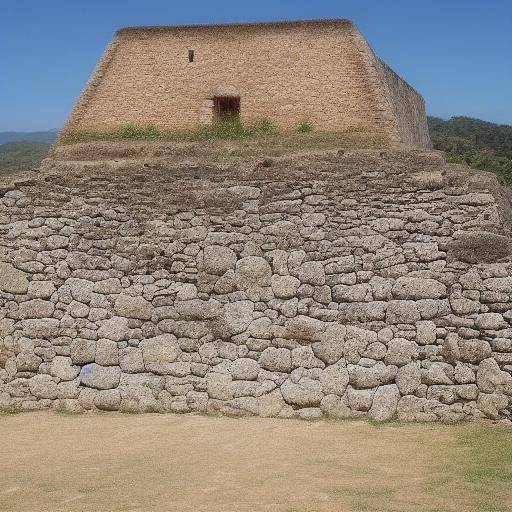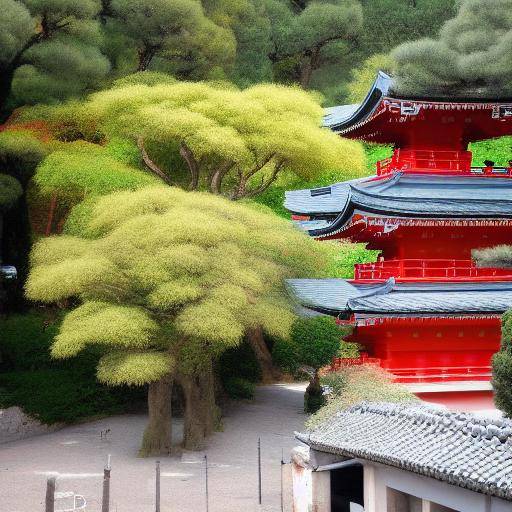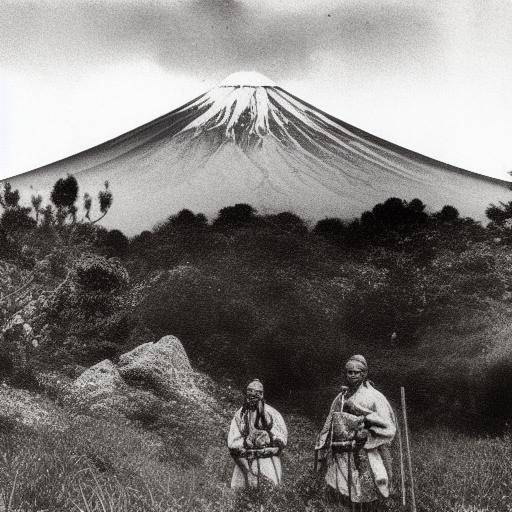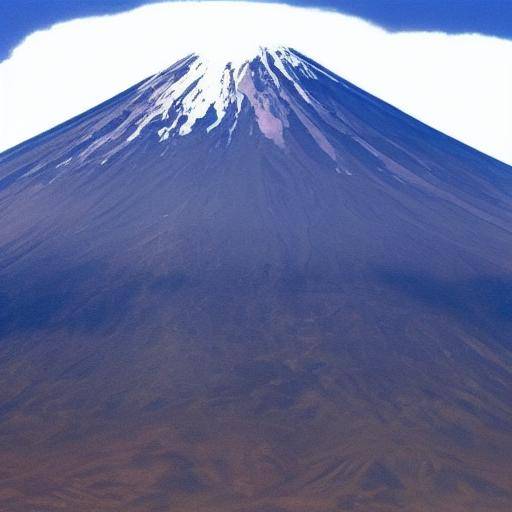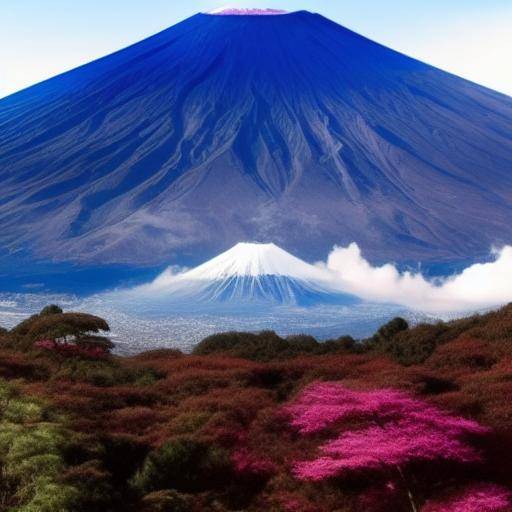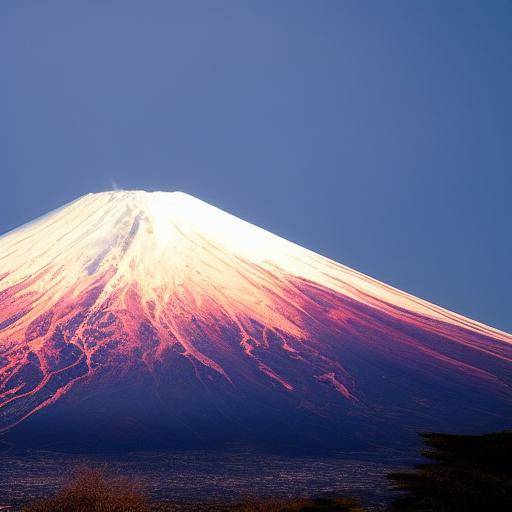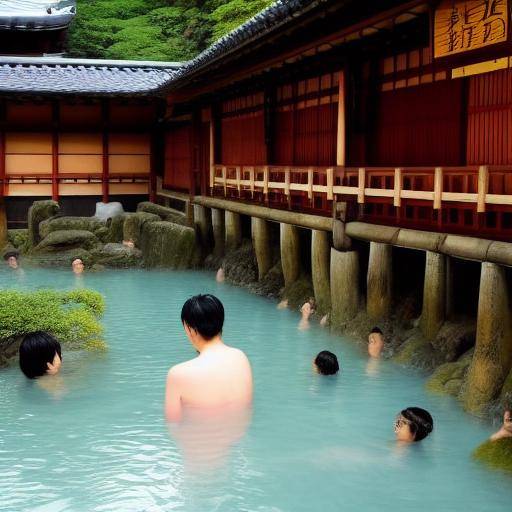
Introduction
Traveling to Japan is a unique experience that allows you to immerse yourself in the tradition, culture and art of the rising sun country. One of the most emblematic aspects of Japanese culture is the practice of onsen, thermal baths that offer an experience of relaxation and renewal that has been an integral part of Japanese life for centuries. In this article, we will thoroughly explore the onsen, its importance in Japanese culture and how this experience offers an insight into the authentic Japanese relaxation experience. Throughout this journey, we will discover how the onsen are intertwined with Japan's rich history and tradition, and how this practice represents the essence of Japanese cultural experience.
History and Background
Onsen, or natural thermal baths, have deep roots in Japan's history. Over thousands of years, the Japanese have used the thermal waters to relax, heal diseases and strengthen their ties with nature. Japan's devotion to the onsen goes back to the time of the samurai, where these warriors sought relief in the thermal waters after exhausting battles. Over the centuries, onsen became a pillar of Japanese culture, evolving to include unique rituals and traditions that reflect Japan's reverence by nature and balance in life.
During Japan's isolation times, the onsen also offered a place for reflection and encounter with other members of the community. This social role of the onsen has lasted until today, becoming meeting points where people can enjoy meaningful conversations and share experiences while immersed in healing waters.
Onsen not only offer therapeutic benefits, but also symbolize the very essence of the connection between man and nature, a fundamental principle in Japanese culture. This intimate relationship between the onsen and Japanese philosophy is manifested in the ritualization of experience, with norms of label and behavior that have been transmitted over generations.
Analysis in Deep
The practice of immersed in onsen offers both physical and mental benefits. From relieving muscle pains to reducing stress and improving blood circulation, onsen have been recognized for their healing properties for centuries. Its unique mineral composition provides a natural therapy that stimulates relaxation and integral well-being.
Currently, onsen tourism is a vital aspect of Japan's tourist industry. Whole peoples have developed around the preservation and promotion of these thermal waters. In addition, modern onsen have adapted their approach to meeting the needs and preferences of international travelers, offering a diverse range of services and amenities.
This evolution, however, poses challenges in terms of sustainability and conservation. The preservation of natural resources, the balance with the surrounding environment and the ethical and responsible management of onsen are critical aspects to consider in the current context.
Comprehensive review
The onsen allow visitors not only to enjoy a unique thermal experience, but also to explore the rich Japanese cultural tradition surrounding them. From architectural design to culinary arts, the onsen experience is a complete immersion in Japanese authenticity and hospitality. The tea ceremony, traditional music performances and spiritual practices, such as Zen, are complementary aspects that intertwine with the onsen experience, further enriching the understanding of Japanese culture.
Comparative analysis
The onsensons are a unique manifestation of Japan's cultural identity. By contrasting with other relaxation practices of different cultures, you can appreciate the particularities and distinctive value of the onsen. While some countries may have spas or thermal baths, the experience of diving into a Japanese onsen offers a cultural depth and a spiritual connection that goes beyond mere physical relaxation.
Practical Tips and How to Enjoy the Maximum
If you plan to visit Japan and immerse yourself in the onsen tradition, it is important to know the rules and customs that surround this experience. Travelers should be familiar with the appropriate label, which often includes bathing completely before entering the thermal water, refrain from using towels in the water and respect the silence and serenity of the environment. In addition, each onsen can have its own rules and protocols, so it is crucial to be informed before the visit.
It is advisable to carefully investigate and choose the onsen that fits your preferences, either by its specific mineral waters, its panoramic views or its traditional architecture. Finally, enjoying a dish of local gastronomy after a relaxing bath in the onsen is a perfect way to complement the experience and connect with authentic Japanese culture.
Industry Perspectives and Expert Reviews
Onsen tourism in Japan has experienced growing popularity worldwide, which has led to innovation and diversification in the supply of onsen experiences. Experts in the tourism industry highlight the importance of preserving the cultural authenticity of the onsen, while adapting to the changing needs of international visitors. Sustainability and conservation of natural resources are a recurrent theme in discussions on the future of onsen in Japan, with an approach to fostering responsible and environmentally friendly practices.
Case Studies and Real Life Applications
Inspiring examples of how onsen have been incorporated into therapeutic practices, well-being programs and luxury travel experiences are testimony to the lasting impact they have on Japanese society and the tourism industry. The onsen have also been a vital economic engine for local communities, attracting visitors and fostering the development of sustainable tourism infrastructures.
Future Trends and Predictions
As global tourism evolves and awareness of well-being and sustainability grows, the onsen are expected to continue to play a leading role in the Japanese tourism industry. Trends that combine relaxation experiences with holistic well-being practices and an approach to the preservation of cultural authenticity are characterized as key elements in the future evolution of the onsen.
Conclusions
The onsen tradition in Japan represents a unique symbiosis between nature, culture and the search for inner peace. Dipping into the thermal waters of an onsen is not only a rejuvenating experience, but also a portal to the authentic essence of Japanese culture. Through the understanding of the onsen, visitors can appreciate Japan's undeniable connection with nature and its wisdom in the art of relaxation. This centenary practice will remain a pillar in the journey to deep understanding of Japanese culture and equilibrium with the environment.
Frequently asked questions
What is the difference between an onsen and a sitting in Japan?
The onsen are thermal baths that use geothermal heated natural waters, while the seating are public bathrooms that use drinking water. The onsen are usually located in natural areas, such as in volcanic areas, and offer an experience closer to nature, while the seated are urban facilities that provide a space of relaxation and cleanliness, but do not have natural thermal waters.
What is the right tag when visiting an onsen?
It is important to follow the label rules in an onsen, which usually include bathing completely before entering the thermal water, not using towels in the water, respect the silence and serenity of the environment, and follow the specific onsen instructions you are visiting.
Are there age or gender restrictions in the onsen?
Some traditional onsen may have gender restrictions, with separate areas for men and women, while others may offer mixed areas or family days. In terms of age, some onsen may have access restrictions for young children, although many are also family members and welcome visitors of all ages.
Are the onsen exclusive to foreign tourists?
No, onsen are an integral part of Japanese culture and are open to both local and international visitors. In fact, joining an onsen can offer an authentic experience of Japanese life and an opportunity to connect with Japanese hospitality and tradition.
Is it necessary to know Japanese to enjoy the experience in an onsen?
Although having basic Japanese knowledge can facilitate communication, many popular onsen frequented by international tourists offer information in several languages and have staff trained to attend foreign visitors.
What is the best season to visit an onsen in Japan?
Cold seasons, such as winter and spring, are usually ideal moments to enjoy an onsen, as they contrast with outdoor temperatures and offer a warm and welcoming escape. However, the onsen are a pleasant experience throughout the year, and the choice of the season can depend on your personal preferences and the natural environment you would like to enjoy.
Conclusion
The onsen represent a unique and essential facet of Japanese culture, offering visitors an incomparable opportunity to experience Japan's tradition and authenticity. Dipping into the thermal waters of an onsen is not only a rejuvenating practice, but also an entrance door to Japan's deep connection with nature and wisdom in the art of relaxation. This centenary practice will remain a pillar in the journey to deep understanding of Japanese culture and equilibrium with the environment.
When planning your trip to Japan, do not miss the opportunity to immerse yourself in the tradition of the onsen and discover for yourself the art of Japanese relaxation, a cultural experience that will last in your memory long after you have left the healing waters of this extraordinary gift of Japanese nature.

